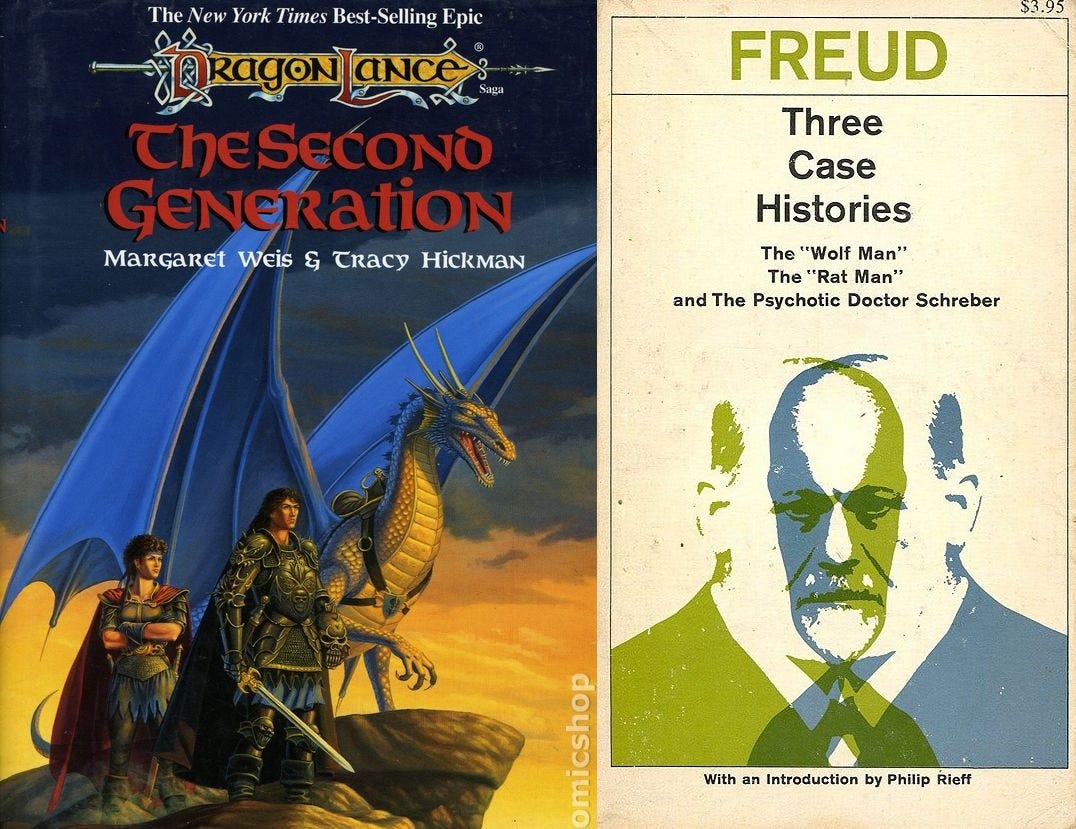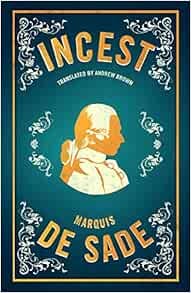He had learned to read at a spectacularly young age, spontaneously and without instruction. His parents had read him children's books, but when they weren't available and he impatiently wanted to know what happened next, he picked the book up himself, and started to read.
Things quickly got out of hand. He read Lord of the Rings before he started school. He didn't much care for school, but he loved the school library. As his peers were lear-ning to spell, ma-ry has a red ball, he was plowing through the school library, walking around and grabbing any cover that struck his fancy. It was here he read his first book in English. One of the many low brow fantasy series he had consumed, had not yet been translated, and so when he wanted to know what happens next, he asked the school librarian to order the English version of the next book in the series, and then just as he had learned to read, he impatiently just sat down and read it.
Next came the scientific literature. Having heard the name Freud somewhere, he decided one day, walking through the public library after school, to pick up a random handful of books under that name and see what all the fuss was about. The perverse horror stories of rats, excrement and horse penises reminded him in a way of the fantasy books he was now growing out of, at the tender age of 13. He was reminded of the scene in Dragonlance, where a full 5 pages is dedicated to describing how a heroine is taking off her leather boots - which at the time he read it, was a huge mystery to him. “So this is what happens next!” he thought.
It is perhaps wrong to say his fascination with the perverse and strange “grew”, but it was certainly fed.
That one book he could never remember the title od, about a gruff one eyed knight, who raises a princess from childhood only to later marry her, had stuck out in his mind as a great mystery, as he did could not penetrate what his own strange revulsion and fascination towards it meant. What does such a book lead to? When he read Marquis de Sade’s 'Incest' many years later, he was satisfied that he had finally found out what happened next.
He was at an airport when he bought his first book about conspiracy theories, Confessions of an Economic Hitman. He bought it with two other airport books, the sacred magic of abramelin, and a biography of Johnny Depp. He planned to read them while on a school trip to London. He read confessions on the plane there, and Johnny Depp on the plane home. A couple of years later, in high school, he had a civics course about the American political system, and his peers were spelling out, "ma-ry has a red vo-te." Abramelin he only read many years later.
In high school he outgrew the psychologists and moved on, from the fun and wicked perversions of psychology, to the philosophers. Once again, he just walked around the library and picked books at random, judging them by their cover. At this point he would borrow ten books and read maybe two of them. His brother prided himself that he had finished every book he ever started, and he wished he could do the same - but there were too many books, and he wanted to read them all at once.
As with psychology and textbooks on biology and physics, he had no one to guide him and he just started in medias res with this new subject of philosophy. Coming from his place of scientific reading, he figured the obvious point to start, the obvious next step, was the so-called philosophy of science, and he read Popper and Marx and the first ten pages of a hundred boring, drab and dry commentaries. And he wondered how his brother did it, and felt like a very poor reader indeed.
It seemed like a mistake had been made. Before, every new book had been one step deeper, into some secret, hidden, even forbidden place, full of wonder and excitement. But now every new page was more boring than the next. Instead of the unnameable mystery coming ever closer, inch by inch, to be within his grasp, with these books it always remained static in the distance, like a mirage over a hot desert horizon, or a rainbow, always fixed at the same distance no matter where you move. The rainbow is a figment of our imagination, they all said, but he knew otherwise, because he had always been getting closer.
He knew had to go back to move forward.
He went into the other side of psychology, the bizzare combination of western scientism, and eastern traditional philosophy, and read about the Buddha, Laozi, and motorcycle maintenance.
After High School, he went to university, because he didnt have anything better to do, studying philosophy. Now, finally, there was a bit of guidance on where to start with the whole damn thing. However, when he brought home his copy of Pojmans “Classics of Philosophy” to the apartment where he slept on some friends’ couch, that very first day, he opened the book and started reading at random, whatever chapter caught his eye. It was here, this very day, he discovered Wittgenstein, and he instantly felt he was one step closer. This definitely happened next! He suddenly understood how everything he had previously read, from the psychologists to the scientists were all wrong - they were all based on a failure to understand the wittgensteinian insight. But more importantly: What Comes Next turned out to be, in fact, what came before. The only way forward, was indeed to go backwards. As he pondered all these things, his peers were spelling out “Ma-ry has a red e-pis-te-mo-lo-gy”.
Years later, while on a trip to Berlin with his girlfriend, he stopped by a bookstore, which was a famous “cool bookstore”, according his girlfriend. They had all sorts of secret and banned and forbidden books, supposedly. This spoke greatly to him, however he left with only a copy of Thus Spoke Zarathustra at the time. The whole situation backfired horribly for the girlfriend, for the rest of their vacation, he was absentminded and didnt even want to partake in their cooky bohemian lifestyle, and just wanted to sit and read his new book.
“Why didnt I read Nietszche at university?”, he wondered. “This is great”.
The more back in time he went, the closer it felt like he was getting to finally discovering what comes next, and figuring the whole thing out, from sex and leather boots, all the way down to, whatever the bottom might be. Nietszche had some great insights on the leather boot stuff.
As a young adult now, he began to go back to literature itself, souring on all the philosophy and theory, that all lead no-where. Following the signs and clues from all of his reading, from conspiracy and politics and history and philosophy, he intuited that the answer was further back, something that comes before art itself, perhaps.
He read his airport magic book, and then he read about kabbalah and mystisism. First hand sources from the past 2000 years of history, diaries, Caesar’s conquest of Gaul. Mein Kampf. He began to read genuinely forbidden books, not the coffee bookstore version he girlfriend took him to in Berlin, but things out of print, pdf files distributed on the internet. He read Don Quixote, he read the russians, he read the collected works of Shakespeare.
He read the moderns and the olds, and he asked everyone he knew who had any interest in litterature for where to go, what to read - what comes next.
The more secret, hidden, and occult, the better, it seemed like. Only the genuinely hidden seemed to have any kind of the same feelings that ignited him from the very beginning. The more obscure, the better. Only in the secret corners of the world was there anything left of value, anything that made him feel like he had felt as a child, pondering about Leather Boots.
His most obscurantist friend, a man who had wisely studied Literature at university and not philosophy, finally recommended him a certain book.
His friend assured him: This is the end of literature. The Author has perfected and solved literature, much like your Wittgenstein did philosophy. Everything that comes after him is not literature, but something else, new entirely. This Author is the End of Literature. The ultimate What Happens next - there is nothing after it.
He borrowed his friend’s copy of the first book written by this Strange and Hidden Writer, of this obscure, occult text, and began to read.
First he thought it was deja vu. He put the book down and waited for it to pass. But every time he started reading again, it came back: This strange familiar sensation. I've read this before.
This must be it, he thought. This must be Proof. It's transcendental! I'm finally at the bottom, the ultimate truth, and this eerie senation is probably just because I’m faced with transcendental Truth. I finally see What Happens At The End.
But his Gnosis was broken by a sudden gentle sense memory: Tobacco and old furniture. He had in fact read it before - at age 10, in translation. At the time, he had thought it was a children's book, because the protagonist was the same age as him. It was Italo Calvino's “Path to the Spiders’ Nest”. He had picked it at random out of his grandfather's bookshelf.












Very interesting .
I too learned to read by teaching myself when I was still in diapers .
The sheer number of people who are in charge of books but don't like to read and so try diligently to dissuade others from reading astounds me .
-Nate
Quite poignant. Searching outside for that which was always within in a way...